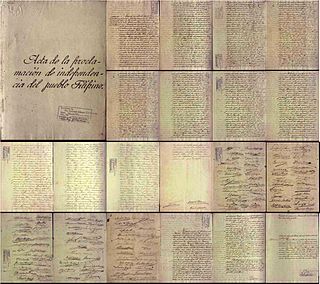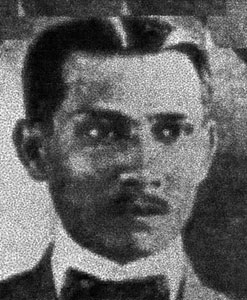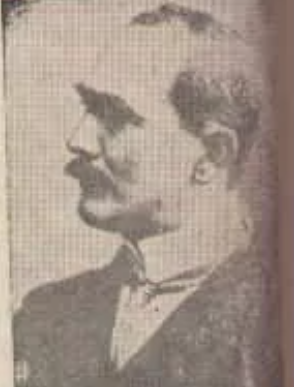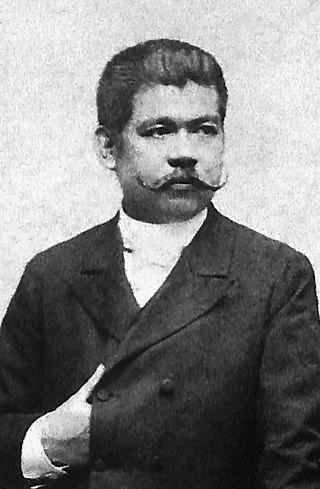Philippine literature is literature associated with the Philippines from prehistory, through its colonial legacies, and on to the present.

Spanish was the sole official language of the Philippines throughout its more than three centuries of Spanish rule, from the late 16th century to 1898, then a co-official language under its American rule, a status it retained after independence in 1946. Its status was initially removed in 1973 by a constitutional change, but after a few months it was once again designated an official language by a presidential decree. However, with the adoption of the present Constitution, in 1987, Spanish became designated as an auxiliary or "optional and voluntary language".
The Kapampangan people, Pampangueños or Pampangos, are the sixth largest ethnolinguistic group in the Philippines, numbering about 2,784,526 in 2010. They live mainly in the provinces of Pampanga, Bataan and Tarlac, as well as Bulacan, Nueva Ecija and Zambales.

Fernando María Guerrero Ramírez was a Spanish Filipino, poet, journalist, lawyer, politician, and polyglot who became a significant figure during the Philippines' golden period of Spanish literature, a period ranging from 1890 to the outbreak of World War II in 1940.
Lourdes Yupangco Castrillo-Brillantes is a Filipina writer in the Spanish language, professor, and a Premio Zobel awardee in 1998. She has authored works such as 81 Años del Premio Zobel, which documented the history of the Premio Zobel and its winners; and the Tesoro Literario de Filipinas, a compilation of Filipino short stories written in the 20th century. She was also a European Languages professor at the University of the Philippines and a contributor to the Cronica of the Manila Chronicle.

Epifanio de los Santos y Cristóbal, also known as Don Pañong or Don Panyong, was a notable Filipino historian, journalist, and civil servant. He was regarded as one of the best Filipino writers and a literary genius. He also entered politics, serving as a member of the Malolos Congress from 1898 to 1899 from Nueva Ecija and later as governor of Nueva Ecija from 1902 to 1906. As a lawyer, he was named as the district attorney of San Isidro, Nueva Ecija in 1900 and later as fiscal of the provinces of Bulacan and Bataan. He was named as an assistant technical director of the Philippine Census in 1918. He was appointed Director of the Philippine Library and Museum by Governor General Leonard Wood in 1925, serving until his death in 1928.
The Philippine Academy of the Spanish Language is the language regulator for Philippine Spanish, the variant of the Spanish language spoken in the Philippines. It is one of two Spanish language regulators located in countries where the language does not have an official status nationwide, the other being the North American Academy of the Spanish Language in the United States.
Guillermo Gómez Rivera is a Spanish Filipino multilingual author, historian, educator and linguistic scholar whose lifelong work has been devoted to the advocay to preserve Spanish culture as an "important element" of the Filipino identity.

Jesús Balmori y González Mondragón was a Filipino Spanish language journalist, playwright, and poet.
Philippine literature in Spanish is a body of literature made by Filipino writers in the Spanish language. Today, this corpus is the third largest in the whole corpus of Philippine literature. It is slightly larger than the Philippine literature in the vernacular languages. However, because of the very few additions to it in the past 30 years, it is expected that the former will soon overtake its rank.

Manuel Artigas y Cuerva was a Filipino historian and journalist who prolifically wrote in the Spanish language.
Spanish people of Filipino ancestry or Filipinos in Spain are an ethnic and multilingualistic group in Spain, consisting of citizens and the descendants of early migrants from the Philippines to Spain, as well as more recent migrants. Some 200,000 Filipinos are estimated to live in Spain, including 37,000 expatriates from the Philippines living in Spain who are either Spanish citizens or do not hold any citizenship.

The history of the Philippines from 1565 to 1898 is known as the Spanish colonial period, during which the Philippine Islands were ruled as the Captaincy General of the Philippines within the Spanish East Indies, initially under the Viceroyalty of New Spain, based in Mexico City, until the independence of the Mexican Empire from Spain in 1821. This resulted in direct Spanish control during a period of governmental instability there.

Marcelo Hilario del Pilar y Gatmaitán, commonly known as Marcelo H. del Pilar and also known by his nom de plumePláridel, was a Filipino writer, lawyer, journalist, and freemason. Del Pilar, along with José Rizal and Graciano López Jaena, became known as the leaders of the Reform Movement in Spain.

Francisco Alonso Liongson was a Filipino writer and playwright. He was born into an Ilustrado family from Pampanga, Philippines at the turn of the 20th century and raised with the revolutionary values of an emerging Philippine identity which held freedom, justice, honor, patriotism and piety sacred. He witnessed the rapid changes that transformed the Philippines from a repressed society cloistered in a Spanish convent for over 300 years into modern, hedonistic consumers of American Hollywood glamor for 50 years. This period of transition brought instabilities to core family values as the generation gaps wreaked havoc on the social, political, economic and political foundations of a young nation. It was a period of experimentation where the natives began to grapple a new democratic way of life and self-rule; where sacred paternalistic relationships were giving way to egalitarian modes; where traditional gender and familial roles were questioned, and where a new foreign language and the need for a national alternative were alienating the nation from understanding the aspirations of its elders. Liongson, in his unique, inimitable literary style captured snap shots of these struggles with anachronism in plays and articles written in the language that he mastered and loved best, Spanish. His works have since become precious gems of Philippine literature in Spanish and historic records of the Filipino psyche and social life between 1896 and 1950.
Fidel Villarroel was a Spanish historian, writer, filipinologist, biographer, political commentator, Master Theologian of the Dominican Order, and member of the Order of Isabella the Catholic. A recipient of the Pro Ecclesia et Pontifice, he is the former Archivist, Spanish Department Director, Prefect of Libraries, and professor at the Pontifical and Royal University of Santo Tomas. He had also served as secretary to the Apostolic Nunciature for 32 years(1959–1991), and is currently an academic director of the prestigious Academia Filipina de la Lengua Española, the local branch of the renowned Real Academia Española based in Madrid, Spain, and part of the Asociación de Academias de la Lengua Española.

Philippines–Spain relations are the relations between the Philippines and Spain. The relations between the two nations span from the 16th century, the Philippines was the lone colony of the Spanish Empire in Asia for more than three centuries. Both nations are members of the Association of Academies of the Spanish Language and the United Nations.
José María Lasala del Mar, also known as Joe, was a Filipino journalist, editor, and publisher of La Prensa, a Spanish language daily newspaper of Cebu City.

Peru–Philippines relations refers to the bilateral relations between Peru and the Philippines. Both countries are predominantly Roman Catholic and were ruled by the Spanish Empire for centuries. Neither country has a resident ambassador. The Philippines has a non-resident ambassador in Chile and Peru has a non-resident ambassador in Thailand.
Zoilo José Sangalang Hilario was a Filipino poet, playwright, lawyer, politician and linguist. He is known for his poems written in both the Spanish and Kapampangan. languages, as well as a distinguished researcher of the Kulitan script and Kapampangan orthography.









